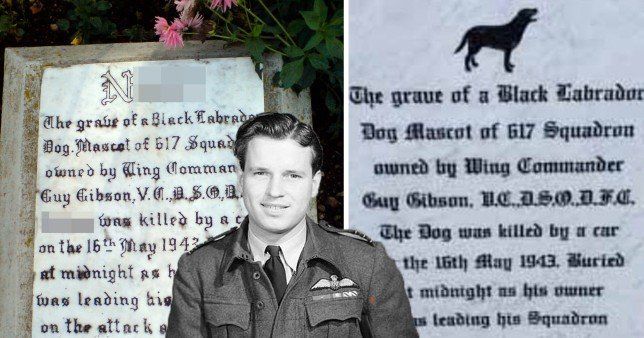Colston statue: airbrushing history
News & Social Media / Post
The woke are quietly stealing our history

To say that statues should be put in museums overlooks the fact that our cities are living museums to who we are and who we have been. To remove one is to edit that history, and remove evidence of who we once praised and what we thought was noble. To edit that history is to sanitise it and remove necessary details from our understanding of the past.
Leaving aside the Coltson business for a moment, I recall that the RAF recently hired a memorial firm to replace the grave of a dog belonging to one of the Dambusters after senior leaders decided it contained an ‘unacceptable racial slur’. The memorial for pilot Guy Gibson’s pet was removed after a ‘corporate’ decision found the word was ‘completely at odds’ with modern times.
Self-described WW2 historian, James Holland, said “I can’t understand why anyone is feeling outraged about this. It’s a sensitive & sensible way of dealing with a dog’s name that is deeply offensive to many, has no bearing on historical events, & which detrimentally distracted from the achievements & heroism of Guy Gibson VC.”
The first point to note is that the memorial itself is a historical artefact. It is a matter of fact that the dog’s name was Nigger. The dog was black. Guy Gibson thought that name was appropriate. It is therefore an insight into attitudes at the time. It is a piece of information relevant to the story of a national hero. And now it has been erased for the sake of transient contemporary taboos. That James Holland was ok with this makes me question his integrity as a historian. The study of history is a science and science does not flinch from sensitive or controversial facts.
In a further tweet Holland remarked “No-one is denying the dog’s name. They’re simply not naming him on a grave marker. It’s really not airbrushing history. Imagine you’re a black cadet in the RAF & you saw that at Scampton. You might rightly think the RAF wasn’t for you”. This is both condescending and stupid. Black people are perfectly capable of contextualising their surroundings, and if moved to join the Air Cadets, they will know of Guy Gibson and his dog.
In place of the original memorial there is now a sanitised plaque which doesn’t feature the dog’s name. A historical artefact has been hidden away by busybody bureaucrats on behalf of black people without being asked.
That then begs the question of where does it stop? I recall not long after the Imperial War Museum took it upon itself to launch a major programme to recaption its WW2 photo archive to remove any problematic terminology under the aegis of decolonisation, failing again to understand that the captioning itself, especially the language, is relevant historical information. Future historians not only need to examine the images but also see history through the lens of the people who first catalogued it.
When it comes to the Colston statue in Bristol, I do not think anybody has the right to remove part of Bristol’s history or the fact that Bristol’s elites attempted to rehabilitate the reputation of Colson by erecting the statues in the first place. The statue tells us a lot about who was in power, and what their values were. It is not for self-appointed moral guardians to selectively edit that history not least since the entire debacle was an entirely self serving virtue signalling gesture.
During my time in Bristol, you couldn’t really escape the name Colston. It’s all over town. Colson Hall, Colston Tower, and the prestigious Colston school. Colston is almost synonymous with Bristol. That link permanently ties Bristol to its involvement in slavery. It should not be airbrushed nor should the fact that Bristol’s aristocracy chose to honour him to the extent they did.
A mature society at ease with itself is one that can acknowledge its own past, good and bad, and the presence of the bad in public spaces serves as a reminder that not all of our past is glorious. It gives us pause if ever we get carried away with the idea that we are superior.
The removal of the Colston statue is not only a wanton act of criminal damage. It is also theft. Theft of our history. It is also an act of censorship to flatter the present – in the particular arrogance that contemporary values are more enlightened. For all that Europe may have abolished slavery, we are still an economy that thrives on the back of low wage exploitation around the world, and our overseas commercial policies contributes to the exodus of peoples which sees tens of thousands of people drowning in the Mediterranean. No EU trade preferences have ever been revoked on human rights grounds.
This is not about defending slavery or “honouring a slaver” as the Guardian’s juvenile hacks would have it. This is about the destruction of public property – and the mob imposing its reactionary will on the whole. Though acquitted by a jury, most agree that the verdict was wrong, and in my view is a wholly unsatisfactory outcome. The jury had it that the excuses given were lawful, setting a disturbing moral precedent.
There is now only one restorative act available to us and that is to clean the statue and put it back exactly where it was and fire the police commander who allowed it to be removed in the first place. As it stands, the empty plinth serves only as a monument to the fact that we have surrendered to the mob and allowed it to steal our history.
Recent National News











